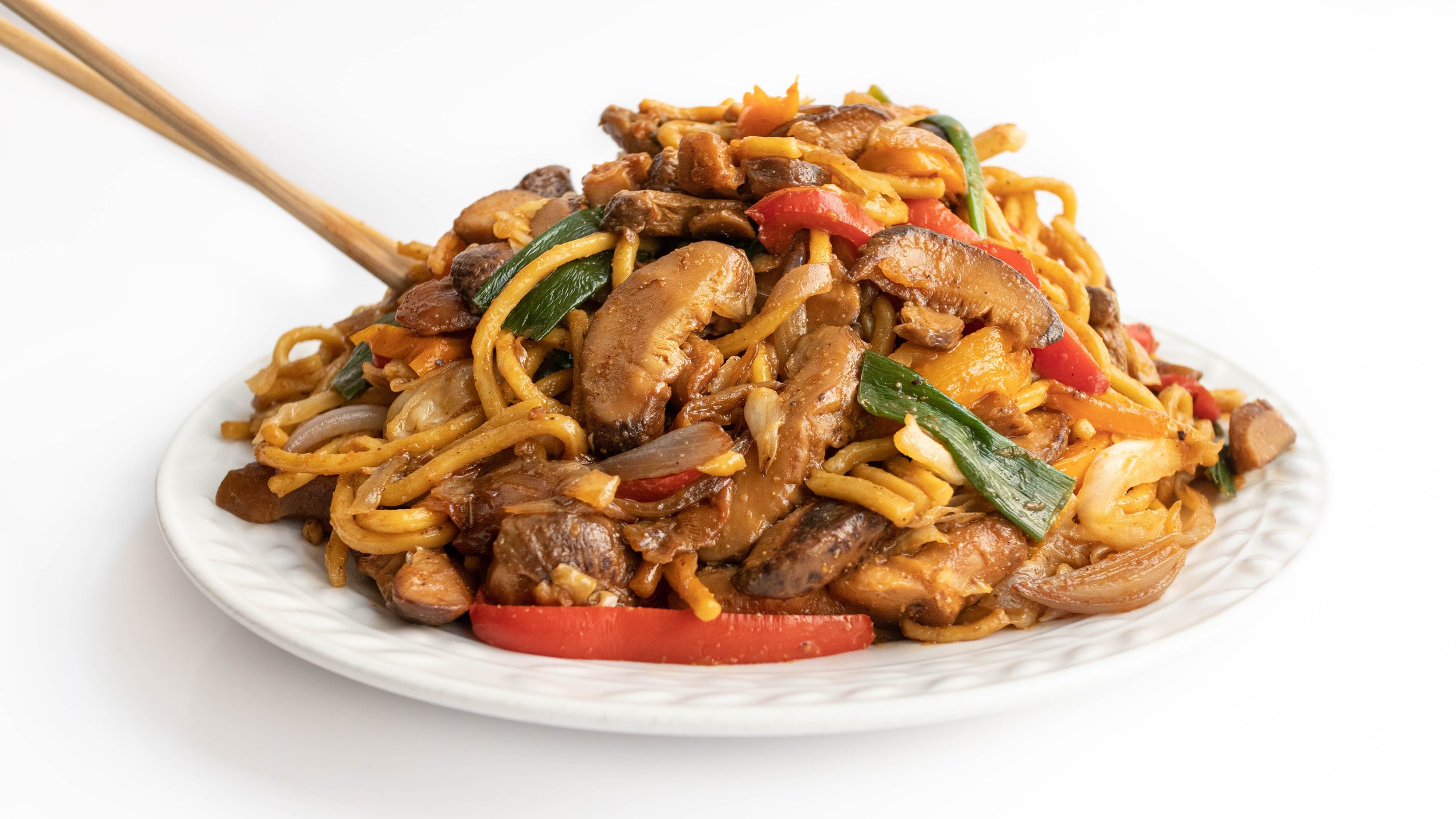Health Benefits of Yakisoba
What are the health benefits of yakisoba?
Yakisoba, a Japanese stir-fried noodle dish, can offer various health benefits when prepared with nutritious ingredients. Here are some potential health benefits of yakisoba:
- Rich in Vegetables: Yakisoba typically includes a variety of vegetables such as cabbage, carrots, bell peppers, and mushrooms, providing essential vitamins, minerals, and fiber for overall health.
- Good Source of Protein: By adding lean proteins like chicken, shrimp, tofu, or edamame, yakisoba can become a balanced meal that supports muscle health and helps keep you feeling full and satisfied.
- Moderate in Calories: As long as you watch portion sizes and avoid excessive oil or high-calorie sauces, yakisoba can be a relatively low-calorie meal option compared to other stir-fried dishes.
- Whole Grain Option: Opting for whole grain noodles or substituting traditional wheat noodles with alternative options like buckwheat or soba noodles can increase fiber content and provide sustained energy.
- Customizable Ingredients: You can tailor the ingredients in yakisoba to suit your dietary preferences, such as incorporating more greens, reducing sodium content, or adding spicy elements like ginger or chili peppers for added health benefits.
Remember that the overall healthiness of yakisoba largely depends on how it is prepared, so choosing fresh, high-quality ingredients, controlling portion sizes, and avoiding excessive use of salt, sugar, and oils can help maximize its nutritional benefits. Enjoy your yakisoba as part of a balanced diet to reap its potential health perks.
What are the health risks of yakisoba?
While yakisoba can be a tasty and relatively healthy dish when prepared with nutritious ingredients, there are some potential health risks associated with it, especially if consumed in excess or with certain ingredients. Here are some considerations:
- High Sodium Content: Yakisoba often contains soy sauce or other condiments high in sodium, which can contribute to high blood pressure and other cardiovascular issues if consumed in large amounts.
- Calorie Dense: If yakisoba is prepared with a lot of oil, fatty meats, or high-calorie sauces, it can become a calorie-dense meal that may lead to weight gain if eaten frequently without considering portion sizes.
- Added Sugars: Some yakisoba recipes may include added sugars in the form of sweet sauces or toppings, which can contribute to increased calorie intake and potential negative effects on blood sugar levels if consumed excessively.
- Potential Allergens: Depending on the ingredients used, yakisoba can contain common allergens such as gluten (from wheat noodles), soy (from soy sauce), shellfish (if seafood is included), and nuts, so individuals with food sensitivities need to be cautious.
- Processed Ingredients: Pre-packaged or instant yakisoba products sometimes contain preservatives, artificial flavors, and other processed ingredients that may have negative health implications if consumed regularly.
To mitigate these health risks, consider preparing yakisoba at home using fresh, whole ingredients, controlling portion sizes, opting for reduced-sodium sauces, and customizing the recipe to align with your dietary needs and preferences. Enjoying yakisoba in moderation as part of a balanced diet can help minimize potential health concerns and allow you to savor this delicious dish responsibly.




